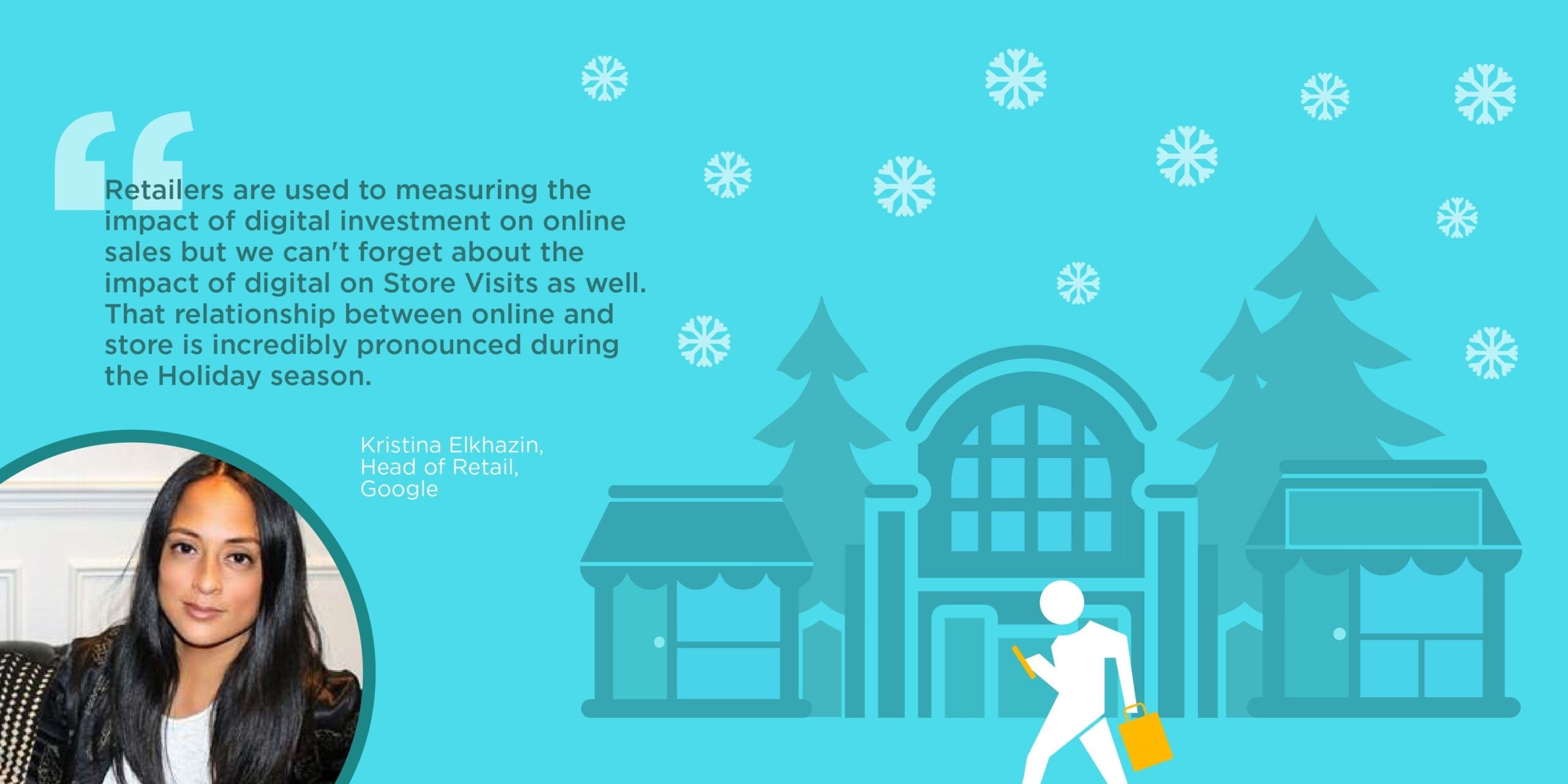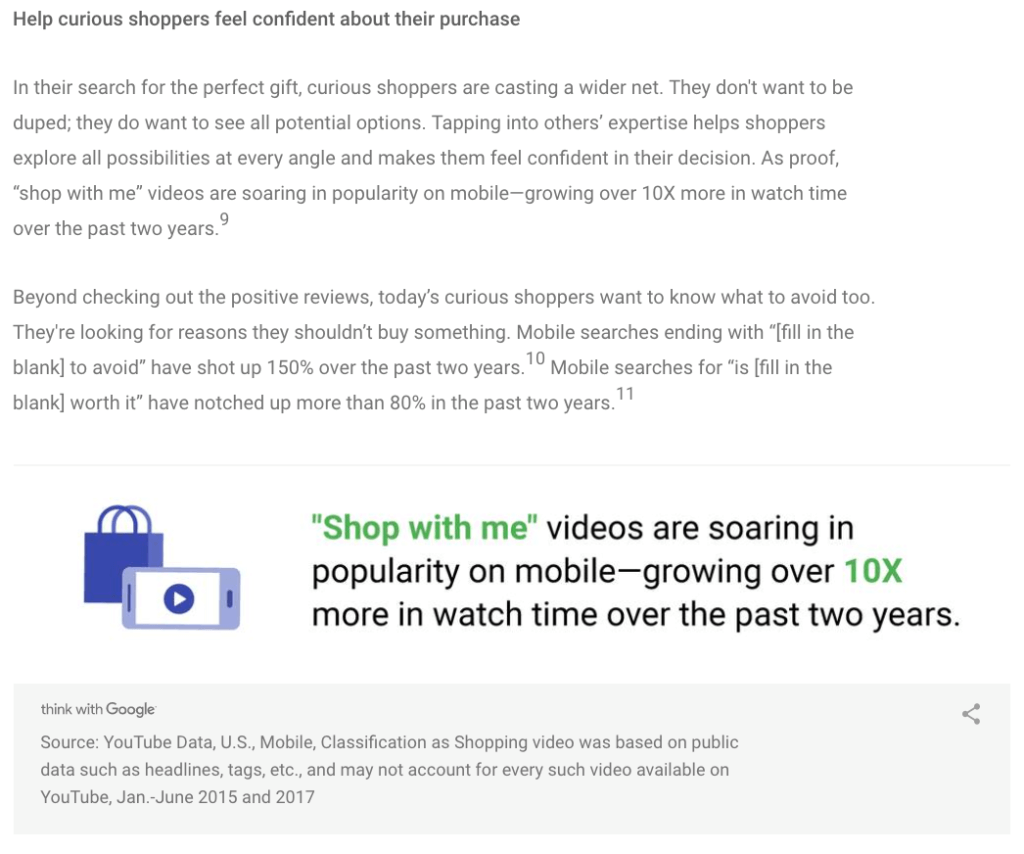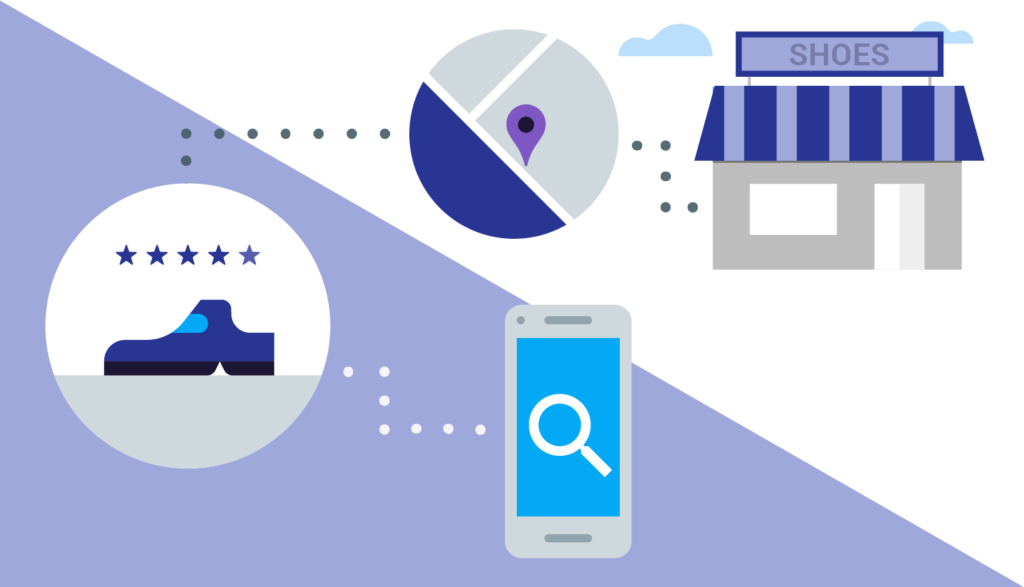
 Tis-season-holiday-marketing-trends...
Tis-season-holiday-marketing-trends... 
As we get ready to roast chestnuts over an open fire and listen to Mariah Carey’s All I want for Christmas is You on repeat, retailers are in full swing preparing for the busiest time of the year. So, what can they expect this season? Here are Kristina’s top insights on how retailers can win every moment of the holiday experience:
KC: The holiday season boasts the most profitable quarter for many brands. What can omnichannel retailers do to stay ahead of the curve?
KE: The term “omnichannel” is one of those buzzwords that the retail industry has been tossing around but, as the holiday season approaches, it’s important to remember what this concept is about, beyond being a buzzword. The goal of omnichannel is to provide a seamless customer experience to shoppers whether they shop in-store or online on any device.
Today, shoppers are visiting stores with greater intent. New research shows that with phones as their “anywhere” assistant, holiday shoppers are increasingly turning to mobile to determine which stores they should visit to get what they need — trading time spent browsing in stores for time researching on their devices before they leave home. The numbers tell the story:
- “Where to buy” is up: Mobile searches for “where to buy” grew over 85% in the past two years, with queries like “where to buy ugly Christmas sweater,” “where to buy cards” and “where to buy gift boxes.” (Source: Google Data, U.S., Jan.-June 2015 vs. Jan.-June 2017)
- Virtual store tours are in: Watch time of “store tour” videos on YouTube grew by more than 10X over the past two years. (Source: YouTube Data, U.S., “Classification as Store Tour” video was based on public data such as headlines, tags, etc., and may not account for every such video available on YouTube, Jan.-June 2015 and 2017)
Measurement plays a big part and so closing the loop by understanding digital’s influence on the store is more important than ever. Using measures like AdWords’ Store Visits, retailers get a better picture of the impact their digital investment has on driving store traffic whether it be through Search, Display (GDN) or Video (YouTube).
KC: What are the most important digital strategies that marketers should make note of as we ramp up for the holidays?
KE:
1) Lean in to last-minute shoppers
2) Help curious shoppers feel confident about their last-minute purchases

3) Create a personalised experience

KC: With search continuing to play an integral role in driving e-commerce and in-store sales, what are some new ways retailers can help drive traffic to stores with even more urgency?
KE: In early November 2016 we launched Local Inventory Ads in Australia, Brazil, Canada, France, Germany, Japan, UK, and US. Local Inventory Ads allow retailers to showcase their products and store information to nearby shoppers searching with Google. When shoppers click your ad, they arrive on a Google-hosted page for your store, called the local storefront. Shoppers use the local storefront to view in-store inventory, get store hours, find directions and more. In Canada, 44% of shoppers said they wished retailers did a better job of sharing inventory information (Source: Google/Ipsos Canadian Shopping Study, Holiday 2016, n=2729). Local inventory ads help to remove friction from the purchase journey by giving shoppers confidence they’ll find what they need in store.
KC: As mobile usage continues to surpass desktop in North America, how can marketers improve the mobile and customer experience to get higher conversions?
KE: Even on a big in-store day like Black Friday, we still see shoppers searching online. In 2016, 43% of retail searches on Black Friday happened on mobile (Source: Google Internal Data, 2016, Canada). What’s more, one-third of all in-store transactions last holiday season were preceded by a related mobile action. So even if you’re not seeing direct conversions, your mobile site is still creating value for you by offering the most powerful opportunity for personalised, assistive interactions both online and in-store. Connect mobile users to your store by using location extensions and applying bid adjustments to bid higher for users near your physical store locations.
Secondly, mobile site speed is crucial. On mobile, we’ve found that 53% of mobile site visits are abandoned if a page takes more than 3 seconds to load. (Google Research, Webpagetest.org, Global, sample of more than 900,000 mobile sites across Fortune 1000 and Small Medium Businesses, Jan. 2017.) During this busy holiday season, we just can’t afford to miss potential traffic so optimising for speed is a must.
KC: There is no denying the power of influencers in motivating purchase decisions. How can retailers leverage this channel to increase sales, raise brand awareness and encourage foot traffic to stores at this time of the year?
Like all influencer programs, the content needs to feel authentic and unique. A great example this holiday season is Walmart’s partnership with Upstairs Amy.

Source: Google Images
It’s a great partnership that highlights Walmart’s values with an entertaining series of content.
KC: What are some trends in gifting searches this year?
KE: Gift discovery online continues to be a crucial part of a customer’s journey. Of Canadian shoppers who are shopping in a category for the first time, more than half of their shopping time is spent online. In Canada, searches for gift ideas flourish throughout December, right up until Christmas eve. Mobile searches for “gifts” grow 30% from the first week in December to the week of Christmas. e.g.: “gifts for coworkers”, “gifts for book lovers”, “gifts for women in their 30s”, “gifts for barbers”, “gifts for him”, “gifts for her”.
KC: What would you say to retailers hoping to drive the most ROI from their digital campaigns during the holidays?
KE: Make sure you’re measuring the full value of digital. Retailers are used to measuring the impact of digital investment on online sales but we can’t forget about the impact of digital on Store Visits as well. That relationship between online and store is incredibly pronounced during the Holiday season. As an example, searches for “store hours” in Canada peak on Christmas Eve, the highest day of the year followed by Boxing Day.

Source: Google Images
For a recent example of how a Canadian retailer, Reitmans Canada Ltd., is leveraging Store Visits to understand exactly what ROI looks like, check out Think With Google’s Consumer insight feature: https://www.thinkwithgoogle.com/intl/en-ca/consumer-insights/canadian-retailers-are-you-realizing-full-value-your-online-advertising/
KC: What emerging media or technology are you keeping your eye on for 2018?
KE: I’m really excited about the launch of Actions on Google. The Google Assistant gives users their own personal Google that helps them find, organise and get things done in their world. The main way users interact with the Google Assistant is by carrying on a conversation with it. Apps extend the Google Assistant by letting you build actions that let users get things done with your products and services.
Unlike with traditional mobile or desktop apps, users interact with apps for the Assistant through conversational, natural-sounding back and forth exchanges, and not traditional, computer-centric paradigms. When you build an app for the Assistant, you design your conversations for a variety of surfaces, such as a voice-centric conversation for voice-activated speakers or a visual conversation on an Android phone. This lets users get things done quickly the way they want, either with voice or display affordances.
This is an incredible new canvas for brands to engage with voice in a way that both provides utility and demonstrates the brand’s personality.
Kimberley Carrera is DAC’s Director of Business Development and is based out of Toronto. To learn more about 2018 digital marketing opportunities, please get in touch with DAC!


